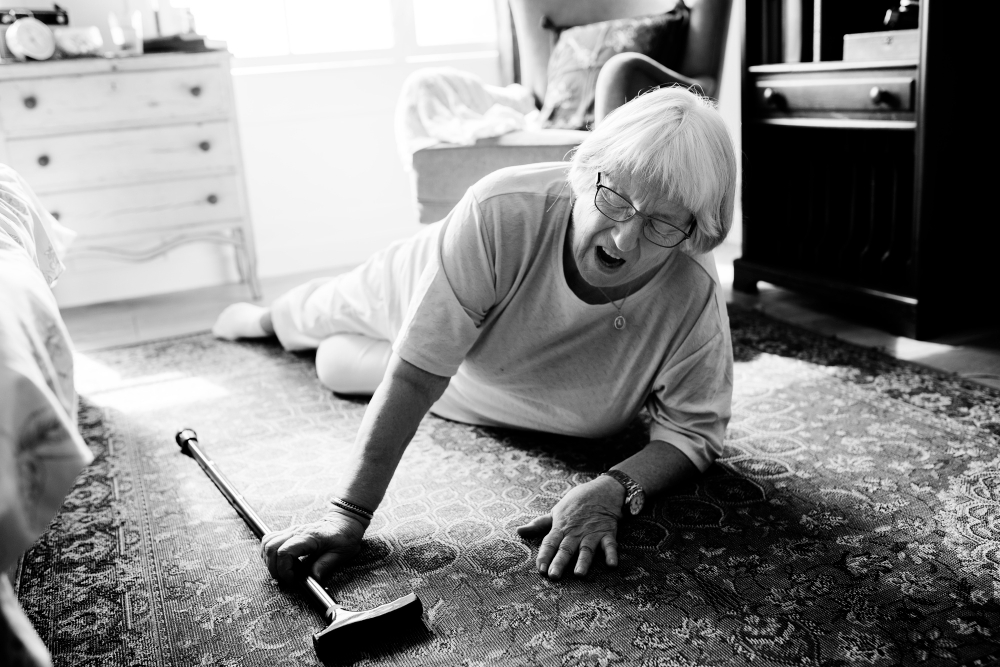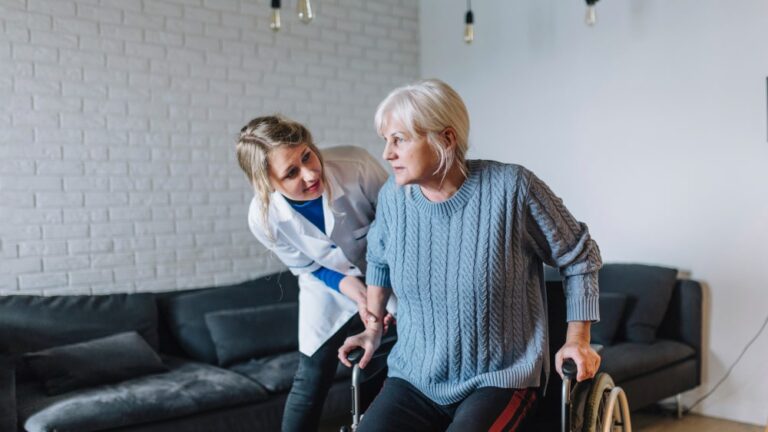Falls among elderly parents can be concerning and challenging to manage. As a caregiver, witnessing your loved one struggle with frequent falls can be distressing and overwhelming. However, understanding the reasons behind these falls and implementing appropriate strategies can significantly reduce the risk and improve their quality of life. In this guide, we’ll explore the causes of falls in the elderly and provide practical tips and solutions to help you effectively address this issue.
Table of Contents
Understanding the Causes:
Before diving into solutions, it’s essential to understand why elderly parents may experience frequent falls. Several factors contribute to this, including:
- Physical Weakness: Muscle weakness and loss of balance are common in older adults, making them more prone to falls.
- Medical Conditions: Chronic health issues such as arthritis, Parkinson’s disease, or vision problems can increase the risk of falls.
- Medication Side Effects: Certain medications may cause dizziness or lightheadedness, increasing the likelihood of falls.
- Environmental Hazards: Cluttered living spaces, poor lighting, slippery floors, and lack of safety equipment can create hazardous conditions.
- Cognitive Impairment: Conditions like dementia or Alzheimer’s disease can impair judgment and coordination, leading to falls.
Learn More: Tips for maintaining physical and cognitive health in older adults
Tips for Prevention and Management:
Now that we understand the causes, let’s delve into practical strategies to prevent and manage falls:
- Home Safety Modifications:
- Remove tripping hazards such as loose rugs and clutter.
- Install grab bars and handrails in bathrooms and stairways.
- Ensure adequate lighting in hallways, staircases, and other high-traffic areas.
- Use non-slip mats in the bathroom and kitchen to prevent slipping.
- Regular Exercise:
- Encourage your elderly parent to engage in exercises that improve strength, balance, and flexibility, such as walking, tai chi, or yoga.
- Supervised physical therapy sessions can also help enhance mobility and reduce fall risk.
- Medication Management:
- Review your parent’s medications with their healthcare provider to identify any drugs that may increase fall risk.
- Ensure medications are taken as prescribed and monitor for side effects such as dizziness or lightheadedness.
Learn More: Sepsis In Elderly
- Vision and Hearing Checks:
- Schedule regular vision and hearing exams to address any sensory impairments that may contribute to falls.
- Update eyeglasses or hearing aids as needed to improve sensory function.
- Assistive Devices:
- Provide your parent with appropriate assistive devices such as canes, walkers, or wheelchairs to support mobility and stability.
- Ensure these devices are properly fitted and regularly maintained.
- Fall Detection Technology:
- Consider investing in fall detection devices or medical alert systems that can automatically alert caregivers or emergency services in the event of a fall.
- Nutrition and Hydration:
- Maintain a balanced diet rich in nutrients to support overall health and strength.
- Encourage adequate hydration to prevent dehydration, which can contribute to weakness and dizziness.
- Regular Health Monitoring:
- Schedule regular check-ups with your parent’s healthcare provider to monitor their overall health and address any underlying medical conditions promptly.
Conclusion:
Caring for an elderly parent who experiences frequent falls requires patience, vigilance, and proactive measures. By understanding the causes of falls and implementing appropriate prevention strategies, you can help reduce the risk and promote your parent’s safety and well-being. Remember to involve healthcare professionals, communicate openly with your parent, and provide the necessary support to ensure they can live comfortably and securely in their own home.







